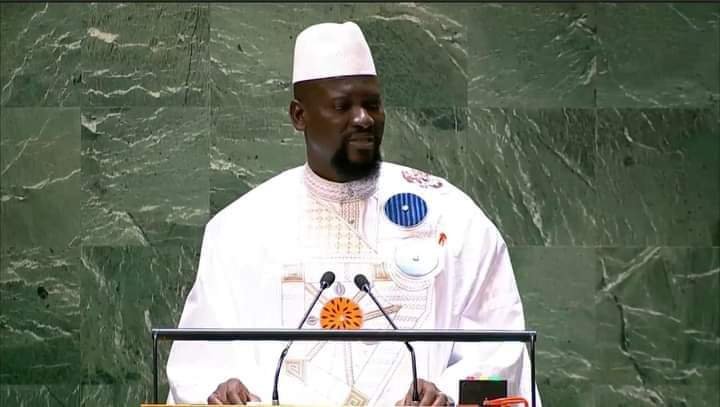65 Years of Independence: Guinea Marks Its Freedom from France
By Baillor Jalloh
On October 2nd, 1958, Guinea made history as the first French-speaking sub-Saharan African country to regain its independence from France. Today, the West African nation celebrates 65 years of freedom since it voted for independence on September 28th, 1958. The road to independence was long and arduous, led by the country’s first President, Ahmed Sekou Toure’, who later ruled with an iron fist for 24 years.
Guinea’s first president, Ahmed Sekou Toure (image akg images)
On Sunday night, Col. Mamadi Doumbouya, the current President of Guinea, addressed the nation on national television and radio to mark the country’s 65th anniversary of independence. In his speech, he wished all Guineans a happy anniversary and urged citizens to celebrate peacefully and live in harmony irrespective of their ethnicity and religion. Doumbouya, who came to power on September 5th, 2021, after leading a coup that led to the ousting of former president Alpha Conde, praised his country’s past leaders for fighting tirelessly to secure the country’s freedom. He also commended his fellow military colleagues for dedicating their lives to serve the nation.
The President stressed that his government’s priorities are economic development, such as creating jobs for the youth, building schools to improve the education system, and providing better healthcare facilities for all Guineans.
Guinea President, Col Mamadi Doumbouya at the UN General Assembly (image Guinea government)
According to recent news reports, all roads leading to Kaloum, the city centre of Conakry, and the presidential palace have been closed to motorists and pedestrians since Sunday night. According to local news reports, the authorities have described these actions as extra security measures to facilitate a peaceful celebration of Guinea’s 65th anniversary of independence.
Meanwhile, Cellou Dalein Diallo, the main opposition leader of the Union of Democratic Forces in Guinea (UFDG), who is currently in self-imposed exile in Senegal, published a statement on social media wishing all Guineans a happy 65th anniversary. He urged his fellow countrymen to remain united and continue the fight to restore democracy in the country .
Cellou Dalein Diallo, UFDG and main opposition leader (image UFDG)
Despite Guinea being rich in natural resources such as bauxite, gold, and diamonds, the country still lacks proper medical care, clean water, and electricity. Over 60% of the country’s population lives under one dollar a day, and most of the youth are jobless. The lack of infrastructure and poverty has been widely attributed to corrupt politicians who enrich themselves and their families at the expense of ordinary Guineans.
When the military junta took over in September 2021, thousands of Guineans took to the streets of Conakry to welcome them following their promise that “the mistakes of the past will not be repeated.” However, two years later, the situation has taken a turn for the worse. According to recent news reports, 35 unarmed civilians have been killed allegedly by security forces during protests organised by opposition parties and the civil service. These groups have accused the junta of wanting to stay in power and abandoning their promise of a peaceful transition within 24 months . The situation remains tense, and it is unclear what the future holds for Guinea.
Youths burning tyres in Conakry during a protest over electricity





